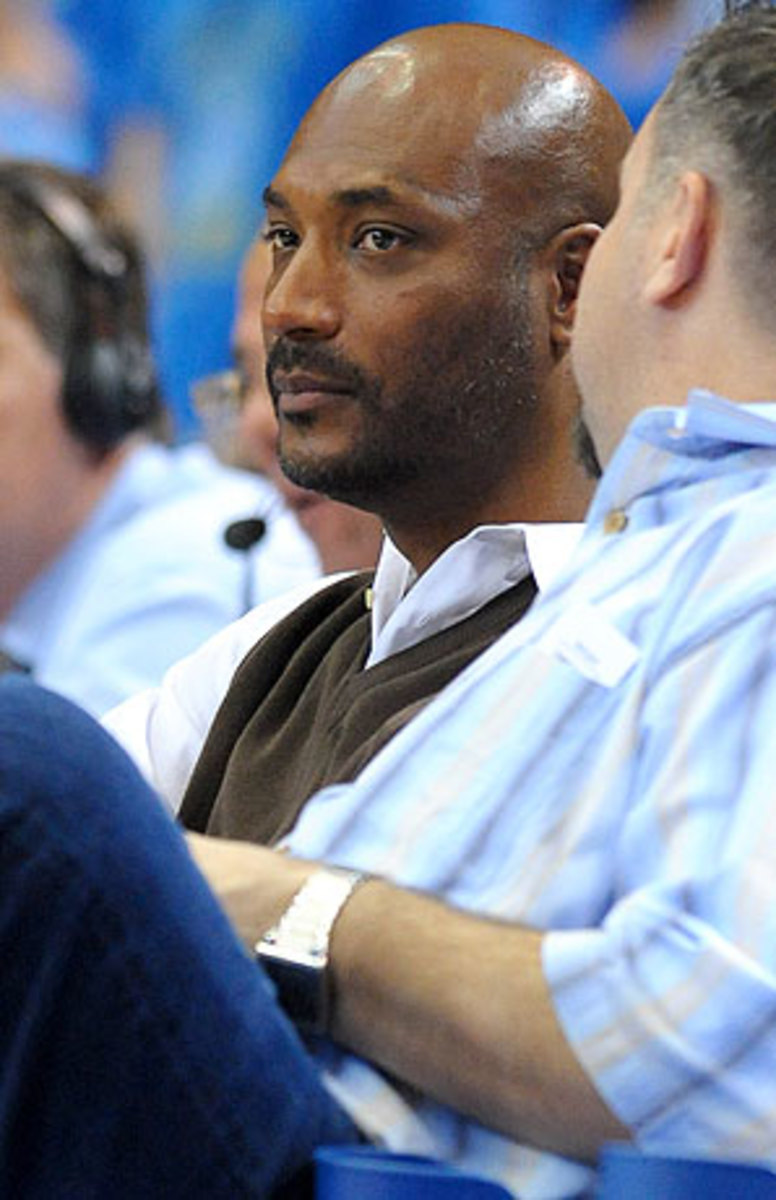Judge orders ESPN to turn over contracts in Ed O'Bannon case
Ed O'Bannon's potentially billion dollar class action lawsuit against the NCAA took another major step forward on Monday night. According to documents obtained by SI.com, U.S. District Judge Alfred V. Covello has ordered ESPN to provide O'Bannon with its television and licensing contracts for Division I men's basketball and football since 2005. The order sets the table for O'Bannon to gain a much better understanding of how much the NCAA profits from current and former players' names, likenesses and images. The order also highlights how the O'Bannon case threatens not only the NCAA and its member institutions, but also companies that have profited from Division I men's basketball and football through contracts with the NCAA and members.
To be clear, ESPN is not a party to O'Bannon's litigation, which O'Bannon hopes to expand to include current Division I men's basketball and football players and which is currently in the pretrial discovery stage. In a motion to compel a non-party, O'Bannon argued that ESPN's broadcasting and licensing contracts are central to O'Bannon's core claim: that the NCAA, the Collegiate Licensing Company (the NCAA's licensing partner) and the NCAA's member intuitions have conspired to deny former college players compensation for the commercial use of their names, likenesses and images.
ESPN, according to O'Bannon, is "an integral and central source of information regarding ... the licensing, sale and use" of college athletes. O'Bannon expects that ESPN's contracts will detail how the NCAA has "monetized" college sports. The dollar figures of ESPN's contracts are crucial: If O'Bannon ultimately prevails over the NCAA in court, the figures would be used in the determination of money damages. Alternatively, if O'Bannon ultimately settles with the NCAA, ESPN's contracts would likely impact any settlement figure.
ESPN firmly opposed O'Bannon's motion, which will compel the network to divulge information that it has closely guarded. ESPN's lawyers characterized O'Bannon's motion as unsupported by law and as unduly burdensome and impracticable. In a court filing, ESPN complained that the motion, if granted, would force it "to conduct a company-wide search for all 7,000 of its current employees and this search would capture innumerable e-mails and documents .. . ESPN is not equipped to perform company-wide searches (or even other searches on a less-than-company-wide basis) for keywords such as 'O'Bannon,' or 'In re NCAA'". Judge Covello's order will require ESPN to undertake these efforts and bear any associated expenses.
Judge Covello's ruling poses both near- and long-term consequences. Most immediately, ESPN will be obligated to disclose the terms of broadcasting and licensing contracts it considers confidential. Equipped with this information, O'Bannon will obtain a firmer grasp of the potential damages of his litigation. This is important, since the more accurately a plaintiff can corroborate alleged damages, the more likely he would obtain those damages if his litigation prevails.
Looking further down-the-line, Judge Covello's ruling is a reminder that O'Bannon's case presents real financial and legal risk for companies that have contracts with the NCAA, CLC or member institutions. ESPN is not the first company to see this risk materialize, as Electronic Arts, makers of college sports video games, has similarly been impacted by the litigation. And yet divulging information they consider privileged is not the greatest worry for these companies. Instead, it's this: relinquishing private knowledge about how much they have profited from the labor of college athletes illuminates these companies' own susceptibility to being sued by O'Bannon. After all, if the NCAA wrongly profited from the names, likenesses and images of college athletes, then companies in contract with the NCAA have arguably done the same.
Michael McCann is director of the Sports Law Institute director at Vermont Law School, a visiting professor at University of New Hampshire School of Law, and the distinguished visiting Hall of Fame Professor of Law at Mississippi College School of Law. He also serves as NBA TV's On-Air Legal Analyst. Follow him on Twitter.






